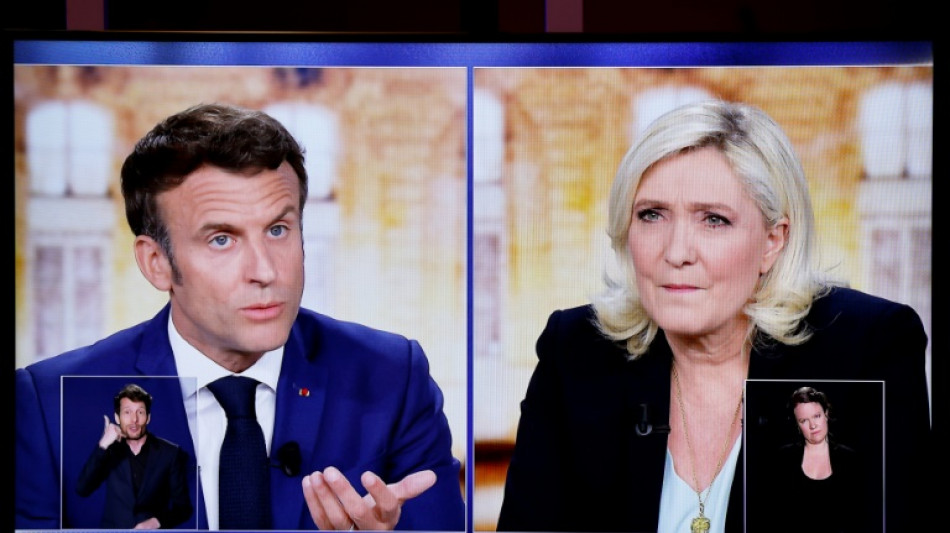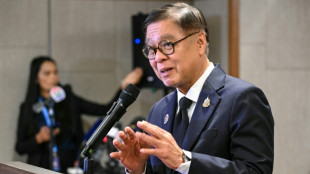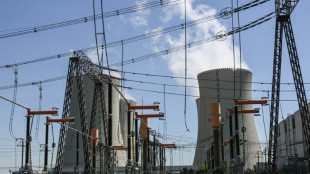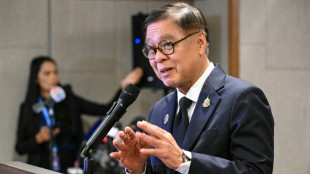

France's Macron, Le Pen in final quest for votes after fiery debate
French leader Emmanuel Macron and far-right rival Marine Le Pen on Thursday launched a final push for votes in working class heartlands of France after a pre-election debate from which the president was judged to have emerged on top.
The televised debate on Wednesday evening -- a pivotal moment ahead of Sunday's run-off vote -- was marked by a highly aggressive performance by Macron, who lost no opportunity to attack his opponent throughout the marathon three-hour session.
Le Pen chose a more cautious approach, making every effort not to be ruffled by the incoming fire and clearly mindful not to repeat her flustered appearance in a 2017 debate against Macron that was widely derided as a fiasco.
The stakes are huge in the election, a rematch of the 2017 run-off between the two candidates. That earlier contest was easily won by Macron but the margin is far narrower this time.
Le Pen is contending to be the first far-right leader of France, and Macron the first French president to win a second term since Jacques Chirac in 2002.
A Le Pen victory would send shockwaves around the European Union, which she has vowed to radically reform if she wins power, and the leaders of Germany, Portugal and Spain have issued a highly unusual call to the French to vote for Macron.
Le Pen insisted, during a visit to northern France on Thursday, that she had "every chance" of winning the election, while condemning Macron's attitude in the debate as "very scornful and very arrogant".
- 'Boa constrictor' -
Some analysts expressed surprise that Le Pen had not adopted a more attacking posture in the debate to focus on the president's record after five years in power.
Macron avoided "having the debate crystallise around his record and came out much more aggressively than expected", the prominent political historian Jean Garrigues told AFP.
A snap opinion poll by Elabe for BFM TV said 59 percent of viewers found Macron the most convincing, while 39 percent plumped for Le Pen.
The Le Monde daily said Le Pen's more cautious approach meant she had missed another chance to put pressure on the pugnacious president.
"Like a boa constrictor, Emmanuel Macron seemed to gradually tighten his grip around his opponent until she suffocated," it said.
Polls show Macron has a clear advantage over Le Pen of some 10 percentage points but allies warn nothing is in the bag due to the large number of undecided voters.
Both rivals have their eyes on left-wing voters and especially those who backed hard-left candidate Jean-Luc Melenchon, who finished third in the first-round vote on April 10.
The president was on Thursday visiting the low-income Seine-Saint-Denis region outside Paris. He lagged far behind Melenchon in round one in the region, where purchasing power and housing have been voters' main concerns.
One female voter who he met likened the election to a choice "between cholera and the plague", telling Macron to show "a bit more modesty". The president insisted that the debate had been "respectful".
Le Pen was spending the day in the northern industrial region of Hauts-de-France -- where she enjoyed strong support in the first round -- winding up with a final campaign rally in the town of Arras.
- 'Democratic candidate' -
Macron sought to land a direct hit on Le Pen against the background of Russia's invasion of Ukraine by focusing on a loan her party had taken from a Czech-Russian bank ahead of the 2017 presidential election.
"When you speak to Russia you are speaking to your banker," he said, accusing his rival of being "dependent" on Russian President Vladimir Putin.
The most explosive clash came when Le Pen confirmed she was sticking by her controversial policy of banning the wearing of the Islamic headscarf by women in public, describing it as a "uniform imposed by Islamists".
Macron responded: "You are going to cause a civil war if you do that. I say this sincerely."
She mocked him as a "Mozart of finance" who had left the economy in a poor state. Macron, meanshile, took aim at her financing plans by saying, "It's not Gerard Majax (on TV) this evening," referring to a well-known French television conjurer.
Turning to Europe, Le Pen insisted she wanted to stay in the EU but reform the bloc into an "alliance of nations". Macron told her: "Your policy is to leave Europe."
In a highly unusual intervention in the domestic politics of a fellow EU state, the leaders of Germany, Portugal and Spain urged France to back Macron against Le Pen.
France faces a "choice between a democratic candidate ... and a candidate of the extreme right", German Chancellor Olaf Scholz, Portuguese Prime Minister Antonio Costa and Spanish Premier Pedro Sanchez wrote in Le Monde.
C.Bertrand--JdB



